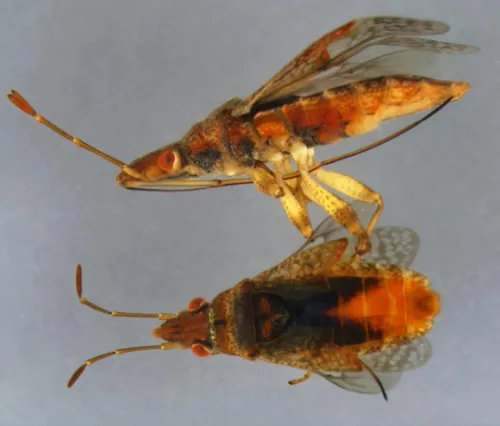
ROMULUS, Mich. — U.S. Customs and Border Protection (CBP) agriculture specialists discovered rare spore spreading seed bugs amid undeclared cypress cones arriving from Jordan late last year.
The half inch-long insects were discovered among fresh cypress cones—brought for medicinal purposes—during a routine inspection of a passenger in transit to Ohio.
Local CBP and USDA officials identified these as Orsillus species, which is a non-native insect known to feed on conifer cones, and on Jan. 1, a specialist at the USDA Systemic Entomology Laboratory identified the species as Orsillus maculatus. According to database records, this pest has only been intercepted twice: Dallas in 1998 and Fort Lauderdale, Fla. during 2018.
In Europe and the Mediterranean Basin, direct feeding on cypress seeds has been shown to cause significant damage to cypress plantations and stands. In addition to this, these bugs carry fungal spores on their bodies, which spread as they move about. While their preferred host is cypress, they have been observed on other conifer species.
In the U.S. Midwest, cypress and other conifer species are important because they reduce erosion, flooding, increase water quality, provide refuge for wildlife, and have ornamental and timber value. This bugs’ ability to feed on multiple hosts coupled with its ability to transfer pathogenic spores makes it a potential threat to native conifer trees that have low genetic resistance to non-native pests like this and the pathogens they may carry.
“This was an excellent discovery by our CBP agriculture specialists,” said Port Director Fadia Pastilong. “We must be cognizant of all threats in the border environment, large and small.”
Invasive insects are problematic because their pest potential is often underestimated based on circumstances relative to their native environments, where predators and plant resiliency help prevent outbreaks.
Travelers can help safeguard American agriculture and our natural resources by declaring all agriculture items. Visit CBP.gov/travel to learn more.







